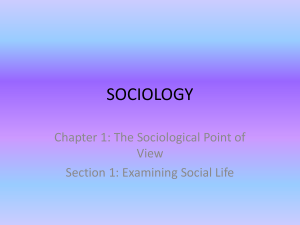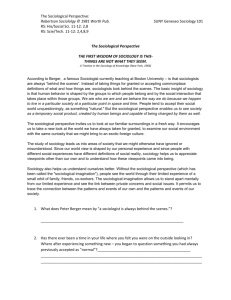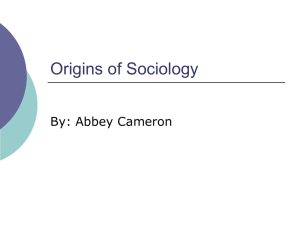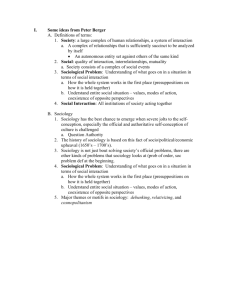Sociology in Our Times (7th Edition)
advertisement
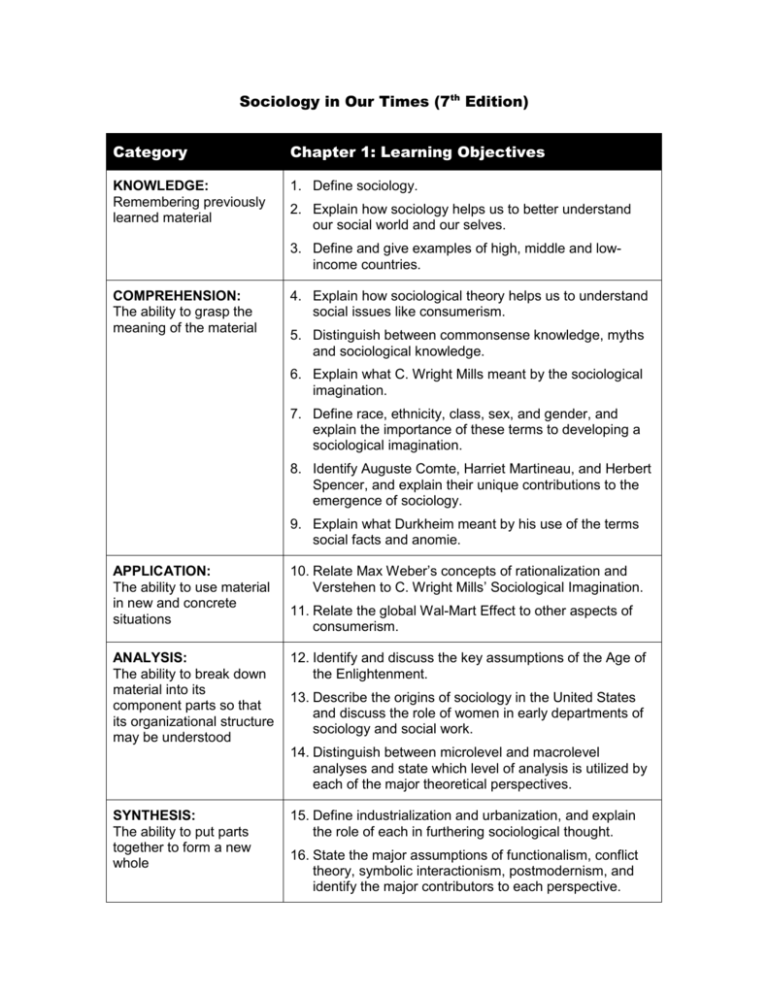
Sociology in Our Times (7th Edition) Category Chapter 1: Learning Objectives KNOWLEDGE: Remembering previously learned material 1. Define sociology. 2. Explain how sociology helps us to better understand our social world and our selves. 3. Define and give examples of high, middle and lowincome countries. COMPREHENSION: The ability to grasp the meaning of the material 4. Explain how sociological theory helps us to understand social issues like consumerism. 5. Distinguish between commonsense knowledge, myths and sociological knowledge. 6. Explain what C. Wright Mills meant by the sociological imagination. 7. Define race, ethnicity, class, sex, and gender, and explain the importance of these terms to developing a sociological imagination. 8. Identify Auguste Comte, Harriet Martineau, and Herbert Spencer, and explain their unique contributions to the emergence of sociology. 9. Explain what Durkheim meant by his use of the terms social facts and anomie. APPLICATION: The ability to use material in new and concrete situations 10. Relate Max Weber’s concepts of rationalization and Verstehen to C. Wright Mills’ Sociological Imagination. ANALYSIS: The ability to break down material into its component parts so that its organizational structure may be understood 12. Identify and discuss the key assumptions of the Age of the Enlightenment. 11. Relate the global Wal-Mart Effect to other aspects of consumerism. 13. Describe the origins of sociology in the United States and discuss the role of women in early departments of sociology and social work. 14. Distinguish between microlevel and macrolevel analyses and state which level of analysis is utilized by each of the major theoretical perspectives. SYNTHESIS: The ability to put parts together to form a new whole 15. Define industrialization and urbanization, and explain the role of each in furthering sociological thought. 16. State the major assumptions of functionalism, conflict theory, symbolic interactionism, postmodernism, and identify the major contributors to each perspective. EVALUATION: The ability to judge the value of material for a given purpose 17. Contrast Karl Marx's perspective on social change with that of Max Weber. 18. Compare sociology with other sciences and determine areas of overlap and important differences.



